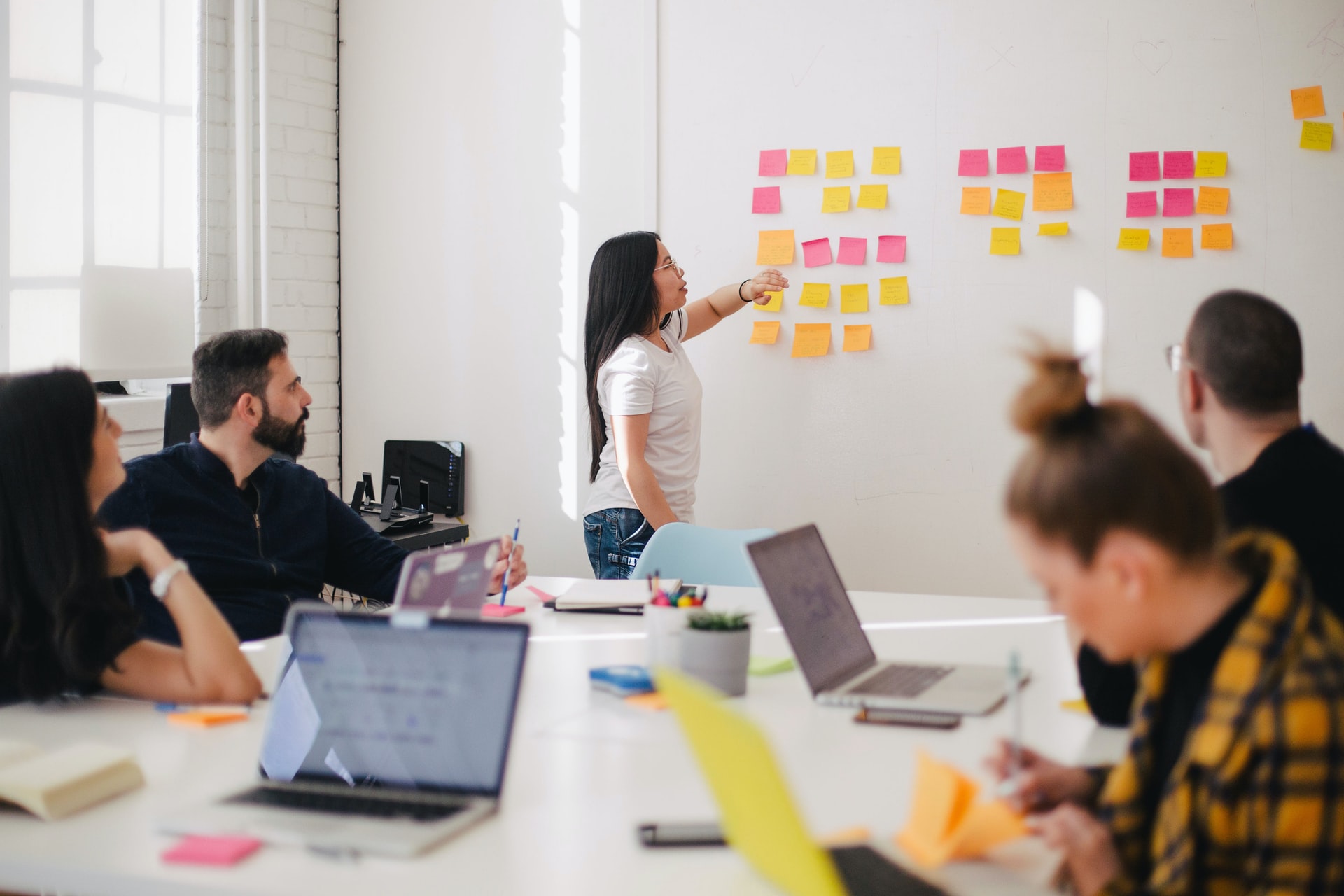"Circular economy" was the fastest rising skill among all LinkedIn users in 2019, according to GreenBiz’s State of the Profession Report. Although the circular economy’s momentum is undeniable, frankly, this finding still floors me. While nearly all jobs could "go circular" by embracing this strategic lens and adopting its principles, a new class is emerging of specific positions designed to accelerate this transition.
To better understand these roles, I asked five corporate circular economy professionals — working at big companies and with the specific words "circular economy" or "circularity" in their title — about the scope and skills needed for their work, as well as advice they would offer to anyone looking to get into the field.
What do you actually do?
A primary function is to set strategy. As lead for circular economy at Google, Mike Werner said he is "responsible for the development of our company-wide circular economy strategy and achieving our mission to maximize the reuse of finite resources across our operations, products and supply chains, and enable others to do the same through the use of our technology." At European e-commerce company Zalando, head of circularity Laura Coppen told me that she "leads the circularity strategy and [is] responsible for driving our product, service and business model goals."
Everyone focuses on internal alignment. Katie Schindall, director of circular economy at Cisco, "leads the enterprise-wide circular economy program… [which] involves a lot of engagement across the company to set and implement strategy, measure and report on impact, and support teams driving initiatives and projects across the business."
Coppen described this as functioning like a "spider in the web between internal and external stakeholders... We bring our strategy to life through co-creating with internal and external stakeholders and ensuring that circularity can happen at scale in the long term."
Specific internal partners vary widely. According to Patrick Ford, director of circular economy at Legrand, "My team and I work with our engineering, product management, operations, and sourcing teams to build circular economy and sustainability principles into our core business activities." At Cisco, Schindall’s work "includes operations, product design and lifecycle management, and the application of technology to help our customers reach their own circular economy goals." And at Google, Werner told me, "I have the joy and pleasure to work across our entire business, including consumer hardware, real estate and workplaces, corporate IT, data centers, cloud and several of our billion-user products, and even in direct engagement with our customers and external partners."
What is the most important skill it takes to do your job?
Having the right mindset is crucial. For Lindsey Kauffman, leader of circular economy at Owens Corning, "It’s important to be comfortable working creatively through relatively uncharted waters." Having started her role just three months ago, Kauffman is embracing the ambiguity. "The circular economy is a new focus for many corporations and there’s no instruction book on how to solve circular economy challenges, so you need to be okay thinking past the usual and moving forward without having all the answers." For Ford, "Systems thinking is key to driving circular economy objectives within an organization."
Each emphasized the importance of bold leadership. "Leadership and people skills are the most important, especially when operating at a global scale like Google," Werner said. Legrand’s Coppen echoed this sentiment: "Circularity needs leadership. Setting the direction and being bold with decision making to make circularity come to life."
For many, this comes down to people skills. At Google, that means thinking strategically about the most effective tools of engagement. "I believe it’s critical to learn how to use the power of narrative storytelling to bring people along on the journey and develop your ability to toggle back and forth between left-brain analytical and right-brain creative thinking and problem solving," Werner said.
At Cisco, Schindall uses the same tailored approach to engagement and communication. "It’s the ability to take a lot of complexity and pull it together into something that makes a compelling case, to the right people, for what needs to be done and how it will bring value to the business and support their specific goals."
What is one piece of advice you would offer a young professional looking to get into the circular economy?
First and foremost, there’s no one way. "There’s no single background or set of skills needed to work in the circular economy," Schindall told me. "My team has people who have all kinds of backgrounds and expertise, from engineering to supply chain to strategy and business case development to greenhouse gas emissions and life-cycle assessment."
This sentiment held true for each of these circular economy professionals. Ford recommends that early-career professionals "look for opportunities to incorporate circular strategies into the ways that you and your team execute on your strategic priorities. Remember that the circular economy is not just for sustainability professionals." Kauffman underscored the nonlinear path to becoming a circular economy professional. "Be flexible while keeping your end goal in sight. Like solving circular economy challenges, there is no set path to a career in circular economy. It’s a big topic and there are a million ways to approach it."
And of course, start somewhere. "We need all hands on deck to enable the transition to a circular economy," Coppen said. "Circularity is the future and will offer a lot of opportunity in the professional world. There are a lot of challenges that need to be solved and who could better contribute to this than the younger generation who knows how people want to shop nowadays?"
There are a lot of parallels to sustainability professionals. In many ways, what it takes to excel in a circular economy job is similar to what’s needed in sustainability roles: connecting dots and working as an internal cheerleader, course-corrector and champion. As the circular economy evolves from an idea to a set of strategies and into specific roles, there is a lot to be learned from the path of sustainability professionals, and much to be accomplished working beside them to meaningfully impact the course of your organization.
Werner captured the sentiment well: "As a circular economy and sustainability professional, you are, by definition, an innovator. You are asking a company to go a different direction, expand their values set or to operate their business differently."
Regardless whether your role has the words "circular economy" in the title or description, I do hope that eventually, it becomes everyone’s responsibility.



